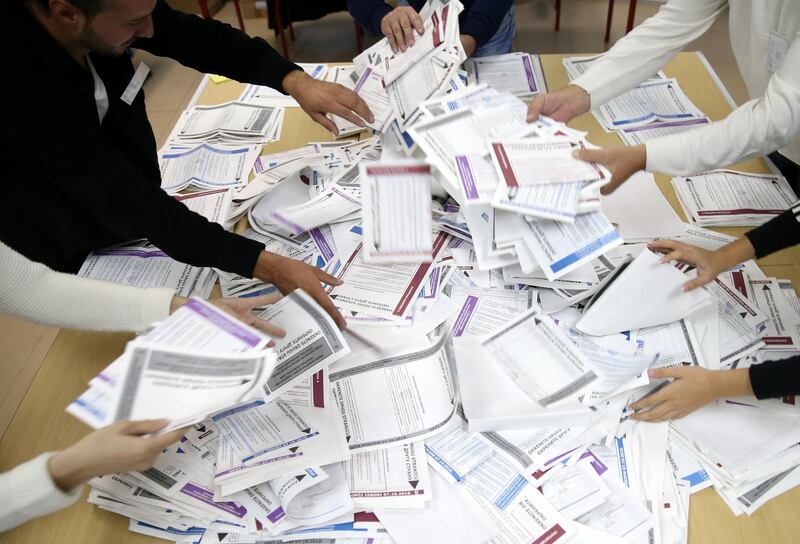Bosnian Serb nationalist leader Milorad Dodik proclaimed victory in Bosnia’s presidential election on Sunday, as did the candidate of the largest Muslim Bosniak party.
Mr Dodik said that he won 56 percent of the vote for the Serb seat in the country's tripartite inter-ethnic presidency.
Sefik Dzaferovic, the candidate of the Muslim Bosniak largest SDA party, also said he won the Bosniak seat in the body, with 40 percent of vote.
_______________
Read more:
Bosnians vote in divisive election testing potential EU bid
Tension flares in Kosovo over possible land swap with Serbia
Russia backs Bosnia's integrity amid Serb calls for secession
_______________
"I am leading and have won the seat in Bosnia's presidency," Mr Dzaferovic said.
Bosnians went to the polls to decide whether their country will pursue a path towards European Union membership and NATO integration or sink deeper into ethnic strife and further fragmentation.
More than two decades after a war in which 100,000 died, leading Serb, Croat and Muslim Bosniak parties campaigned on nationalist tickets, reviving wartime pledges in programmes that failed to offer any clear economic or political visions.
About 3.35 million registered voters were due to take part in the presidential and parliamentary elections, choosing members of Bosnia’s tripartite inter-ethnic presidency, consisting of a Bosniak, a Croat and a Serb, and lawmakers for parliament’s lower house.
They will also select leaders and assemblies of its two autonomous regions – the Serb Republic and the Bosniak-Croat Federation, and of the Federation’s 10 cantons.
The pro-Russian Mr Dodik has repeatedly advocated secession of the Serb Republic and integration with Serbia and analysts say that he will try to weaken Bosnia as the presidency member.
Zeljko Komsic, a moderate Croat who already served two terms in the presidency, said he was leading over nationalist Dragan Covic from the largest Croat HDZ party.
Mr Covic said he has won the majority of Croat votes and that Mr Komsic could profit only thanks to Bosniak votes, the reason why they had demanded the creation of new ethnically-based election units where Croats would vote only for their ethnic kin.
“Such election results may cause an unprecedented crisis in Bosnia-Herzegovina,” Mr Covic said in the southern town of Mostar.






